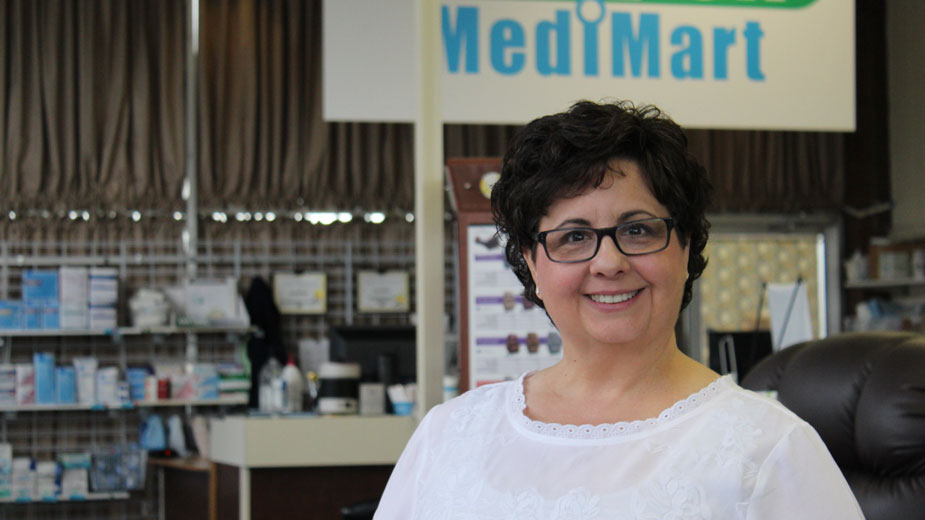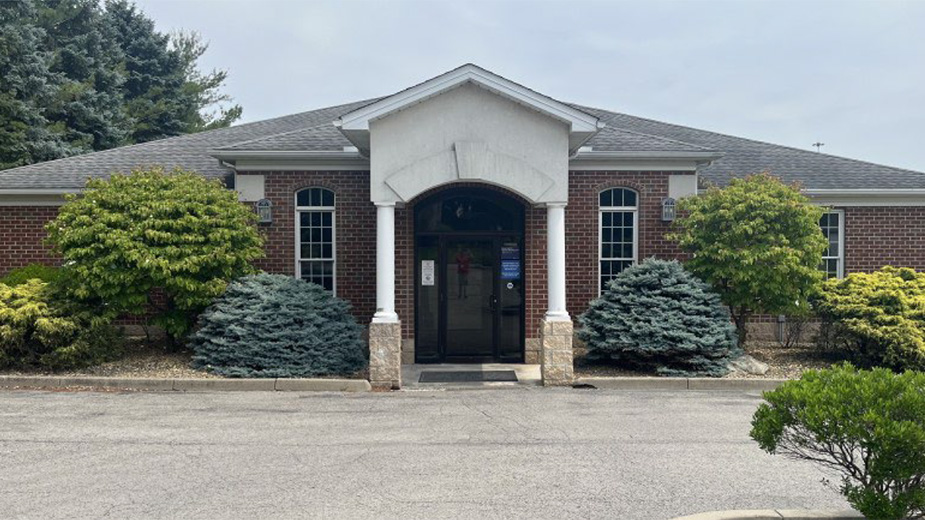Medical Suppliers Search for Their Niche
YOUNGSTOWN, Ohio – The market for medical supplies is a lucrative one to be in, but that doesn’t always make it easy for smaller companies to find their place within it.
Boardman Medical Supply has seen that firsthand. Founded in 1982, it was initially created to supply its sister company, Sateri Homes, but was opened to the public “and the masses started coming,” says Robin Ivany, vice president and general manager of the Girard-based company.
“It was a time when the industry was really lucrative and it was very worthwhile. It still is, but the industry has changed tremendously,” she says.
Today, the market for durable medical equipment – a range of products including mobility devices such as wheelchairs, safety devices, medical furniture, monitoring devices and therapeutic equipment – is forecast to reach $70.8 billion by 2025, according to Grand View Research.
Those figures are being increasingly controlled by a shrinking number of companies, Ivany says, as independent durable medical equipment, or DME, companies have shuttered over the years after feeling the pinch from insurance companies. With the introduction of competitive bidding about a decade ago, the practice requires sellers to submit bids on products, driving down the sale price. Originally part of Medicare, it’s been adopted by private insurance companies.
“When you have insurance contracts, the company makes you charge the patient a certain amount of money,” Ivany says. “You’re not allowed to bill patients other than what their customary charge is across the board. … Since then, over half of the DME companies in the nation have closed. Most of them [still around today] are corporately funded and they have deep pockets, so they can handle stuff.”
Boardman Medical Supply has felt the squeeze, she admits. Today, the company employs 95, down from the 190 workers it had at its peak.
Other businesses under the Sateri banner have helped ease the pain, including the creation of Savon Medimart in 2013. Since Savon has no insurance contracts, it isn’t constrained by the prices established by insurers.
“It has no insurance contracts and it never will. If you want a product, you can come in and purchase it,” Ivany says. “Customers can purchase these products for slightly more than what I’m paying for them. … It helped with cash sales, it helped grow the business and it helped people who couldn’t afford supplies at the rates being charged by insurance companies.”
In Poland, Bill DeToro, president of prosthetics and orthotics manufacturer Anatomical Concepts, has similar concerns about competitive bidding and the limitations it puts on medical professionals.
“One of my dilemmas when I was serving patients was that I’d give them what I knew was best for them. Insurance would say, ‘Well, we’re only going to offer this much or offer this alternative’ when it was an inferior product,” he says. “With orthotics, it bottoms out the pricing. It’s going to kill business and in the long run get rid of the competitive edge, especially since in this country I’m paying more for labor and materials.”
Already, Anatomical Concepts is seeing pressure from cheaper variations of its products made overseas, although DeToro says the company sees plenty of business from “good, smart medical professionals that appreciate the quality of the product we’re manufacturing.” Even with the pinch from insurers, the company is “holding steady and still profitable,” DeToro says. Founded in 1990, Anatomical Concepts employs as many as 30, depending on the demand for product.
The market for such medical supplies, both at Anatomical Concepts and Boardman Medical Supply, is growing with the demand for products aimed at geriatric care and the management of chronic diseases.
“We’re just one of many medical device manufacturers in this country and there’s plenty of them outside the country, too. It’s a pretty big part of the industry,” DeToro says of the prosthetics and orthotics field. “At my last recollection, the U.S. alone has about 43% [of the global industry] and $350 billion[in annual sales]. This industry is going to continue to expand.”
That expansion is providing new avenues for other companies. In the 25-plus years it’s been in business, Centricity has been largely focused on designing and assembling automation equipment, founder and President Rick Amendolea says. Earlier this year, the company, which employs six, launched a line of grab bars, SmartBar, as its first endeavor in the medical supply field.
“We’re still doing the things we always did. We’re still designers and builders of custom automation equipment. But we see this as another branch that can grow significantly over time,” adds Centricity vice president of sales and general manager Bob Miles. “We didn’t suspect that this would be a consumer product, but it grew naturally out of a piece of the market we’ve never been involved in.”
Made at the company’s site in Girard, SmartBar is designed to be easy to install, aesthetically pleasing and offer several functions. Rather than the standard “cookie cutter” installation common to grab bars, which are front mounted and commonly come with three standarized screws, SmartBar can be front-, rear- or dual-mounted and is shipped with the materials needed to mount it on one of seven wall materials, such as fiberglass or drywall.
“If I’m mounting to a concrete wall I can’t use [standard] screws. If I’m mounting to drywall, I can’t use them. The end user never knows what they’ll have to do,” Amendolea says.
A lighted version of the SmartBar, equipped with light and motion sensors, will be available to consumers soon, and a dispenser model that can be equipped with things like hand sanitizer is in development.
“The baby boomers are coming up, so this is a big segment of the population that’s going to be a big hitter. We thought about that early on; this is good timing for something like this,” he continues. “Grab bars used to be only in bathrooms and only in selected bathrooms. Now, they’re going in anywhere. We’ve had people want to install these in entryways, along steps going down into the basement.”
For a standard 24-inch bar, Miles adds, the price for a SmartBar falls into the $50 to $75 range, depending on customization options such as patterns on the bar itself – wood grain, tiger print and jade are among the styles on display at the Centricity office – and images on the mount caps.
“We’re competing with two different markets. There’s the cookie cutter grab bar you can buy for $25 and the designer type that’s concerned with aesthetics that can go for well over $100,” Miles says. “We’re in that niche where it doesn’t look like it’s from a gas station, but people don’t want to spend $150 on a designer one.”
While there’s plenty of opportunity for small businesses in the medical field – locally, it’s one of the largest in terms of employment and is one of the fastest-growing – it isn’t easy for medical suppliers.
“The industry is growing rapidly. Medicine is changing every day, so products change and techniques change. The problem is the insurance companies are dictating what’s going on. So as fast as it’s growing, there are a lot of people leaving,” Boardman Medical Supply’s Ivany says. “I don’t see the industry getting any easier. … We’ll continue to navigate it. I’m just waiting to see where the industry’s going. I’ve held on this long.”
Copyright 2024 The Business Journal, Youngstown, Ohio.



